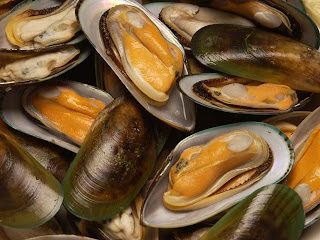Article by Tom Schavo
Myths about any disease generally mislead people, resulting in making the disease very serious. Breast Cancer is no exception. For several centuries now, people have come up with self theories and endless imaginative myths that still exist within our societies. These Myths could turn out to be fatal for a woman.
We present to you 10 greatest myths about Breast Cancer:
Only Old women get Breast Cancer
The statement should rather be “The chances of getting breast cancer are higher in Older women”. However, one has to remember that this cancer can strike at any age. According to the world survey, the chances of getting Breast Cancer at the age ranging between 1 to 39 is 0.5%, at the age between 40 to 59 is 4%, from age 60 to 79 it is 7% while if you end up living for 90 years or above, then chances are 14.3%.
The chances of getting disease is more if you have Risk factor
Wrong. Even the strongest risk factor owner may just go Scott free while a woman who has no risk factor might end up getting this cancer. On the contrary, more cases are reported related to women who had absolutely no risk factor.
If family doesn’t have, you won’t have it
Wrong again. Surprisingly, Women with no family history of this disease, end up having it and the form the major chunk of the entire lot. Guess how much? Well its 80% women. So this is the most ridiculous myth.
Family history of Breast Cancer of Maternal has more risk
Another myth having no logical explanation. The risk is equal, irrespective for whether breast cancer history existed towards maternal side or paternal side. This is mainly because you get genes equally from both Mother and Father.
Breast cancer is caused by excessive use of Antiperspirants
There is absolutely no evidence of such claim. No Antiperspirants has been proved to be the cause of Breast Cancer. This is a grave misunderstanding caused due to lack of knowledge.
Morning pills or Birth control pills cause this cancer
No. The recent or latest Birth control pills contain very small dose of hormones estrogen and progesterone which rules out the possibility of any such risk. Research shows no relation between Birth pills and increased risk of Breast Cancer. Instead these pills have benefits as well, like reduce the ovarian cancer, removes menstrual disorders, or any pelvic inflammatory disease, improves bone density etc.
Fatty foods causes Breast cancer
Wrong. There is no authentic research or study that shows a connection between eating high fat foods and increased risk of breast cancer because of that. However, avoiding fatty food is good for overall health and is always better.
Self examination on a Monthly basis is best way to diagnose this cancer
Though partly correct, but that is not all. The most reliable way to detect breast cancer is the digital mammography or High quality film-screen mammography which would detect the early most cancer stage. Self examine is essential, but it may not necessarily detect the Cancer. 40% of all Breast cancer cases are found by self examination. So, this practice is a healthy one.
There is no cure for Breast Cancer
Although cannot be eradicated completely, there are many ways to reduce the risk of breast cancer in women who are at high risk. Changing the lifestyle like reducing the consumption of alcohol, No smoking, exercise regularly can reduce the chances of breast cancer to a large extent.
If Breast Cancer is detected, you are dead
Wrong. 80% of women who have been diagnosed of Breast Cancer have seen no signs of it spreading to other parts. A woman can live very long even after she suffers from Breast Cancer. Also, the latest breakthroughs in this field has many hopes already in store.
However, IT IS ALWAYS BETTER TO PREVENT THAN TO CURE IT. And what’s your job? ... Let others know about this dreadful cancer by sharing this article with them!


















